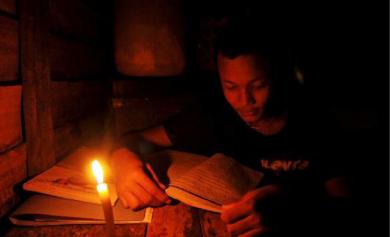
13 January 2015, Lagos – The Lagos Chamber of Commerce and Industry, LCC1, said the power sector performed below expectations in 2014, as evident in the deterioration of public power supply in the year gone by.
Chamber’s President, Alhaji Remi Bello, stated in his 2014 Economic Report that electricity supply dropped by an average of 30 percent in most industrial parts and households in the last six months of 2014. He also said that despite the progress made so far on the power sector reform, particularly on the privatisation of the sector, the power situation continues to pose severe challenges to business owners.
According to him, there were complaints across all sectors about high energy costs especially high expenditure on diesel during the year, stressing that this continues to take its toll on the bottom line of investors in the economy.
He tasked the National Electricity Regulatory Commission, NERC, to urgently address the growing concerns over the outrageous bills to consumers, much of which are not consistent with the earlier advertised billing template.
He said, “In 2014, most firms especially the SMEs expressed concern over increases in their electricity bill. Most SMEs spend as much as 10 percent of their monthly turnover on payment for public power supply alone. Often, these firms never get the power supply they are compelled to pay for. Again, we reiterate our position that the policy of fixed charge by electricity firms should be reviewed as it is unfair to power consumers.”
He also expressed concern that the delay in passing the Petroleum Industry Bill, PIB, remained the greatest encumbrance for the industry adding that there is uncertainty as to when the bill will finally be passed by the National Assembly. According to him, increasing divestment of International Oil Companies’ assets is creating a large pool of indigenous players, stressing that marginal fields and operators are also expanding.
“An estimated 300,000bpd worth of equity in onshore was divested by the IOCs by the end of 2014, and over 22 oil blocks are involved. Shell, which is the leading IOC in the new wave of divestments, is at the moment concluding divestment from OMLs 18, 29, 25 and 24. This is creating new opportunities for indigenous players in the oil and gas industry,” he added.
*Sebastine Obasi – Vanguard



